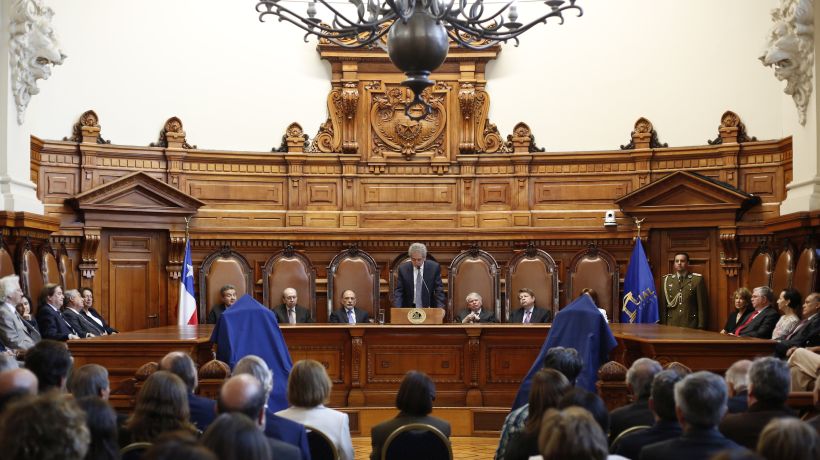
Supreme Court ministers suggested that preventive identity checks should not apply to minors, be it not arbitrary, and limit themselves to people who disturb public order. Lambert cisterns, Manuel Valderrama and Jorge Dahm developed a 70-page document where they give their opinion to the proposals of criminal lawyers, civic peace and some academics to improve the criminal procedure reform. According to Cisterns to El Mercurio, the office, sent to the Ministry of Justice on 14 April, “had the additional participation of some judges with experience in criminal matters and criminal proceedings.” Among the suggestions expressed in the text, the Ministers request that preventive control to children between 14 and 17 years be discarded and maintained from 18 onwards. “The idea is not to develop intrusive activity with regard to minors, because of their condition and respect for the guiding principles of the Convention on the Rights of the child”, said Cisterns. They also requested that the proceedings be non-arbitrary and limited to persons “whose conduct disturbs public order and security, or is hooded or embozada to conceal, hinder or disguise their identity.” The Magitradoss specify that the personnel carrying out this operation must carry their plaque and indicate their name, degree and endowment. As for the registration of each procedure, they point out that it should be public and easy to access for Chileans. They urge to report the results to the complainant. The Office of the Supreme Court favored all the points of this expert proposal, and added to be “in favour of the possibility of superficial records. Streamlines the control model and access through public platforms. ” The magistrates also agreed that failure to comply with this requirement, or respect for “equal treatment and non-discrimination”, would constitute an administrative foul, as well as a possible criminal implication. Cisterns, he added that preventive control is “a police attribution that seems excessive in the light of fundamental rights and for which there is no evidence to demonstrate that its use has been efficient or successful to prevent crimes or improve the Persecution of these, unlike investigative identity control. ” Ministers expect institutions like the Public Prosecutor’s Office to express their position on the government’s initiative
"El reclamo puede ser genuino, pero construido sobre una mentira", apuntó el presidente Javier Milei…
El gobernador de la provincia de Buenos Aires, Axel Kicillof, encabezó un acto en Ensenada…
El diputado nacional de La Libertad Avanza, José Luis Espert, expresó su confianza en la…
Tras la masiva reaparición de Cristina Fernández de Kirchner, el presidente Javier Milei apuntó contra…
El principal propósito de la nueva comisión es evaluar los recursos humanos en el Senado,…
En una medida que busca redefinir las condiciones de los seguros de automóviles en Argentina,…
Esta web usa cookies.